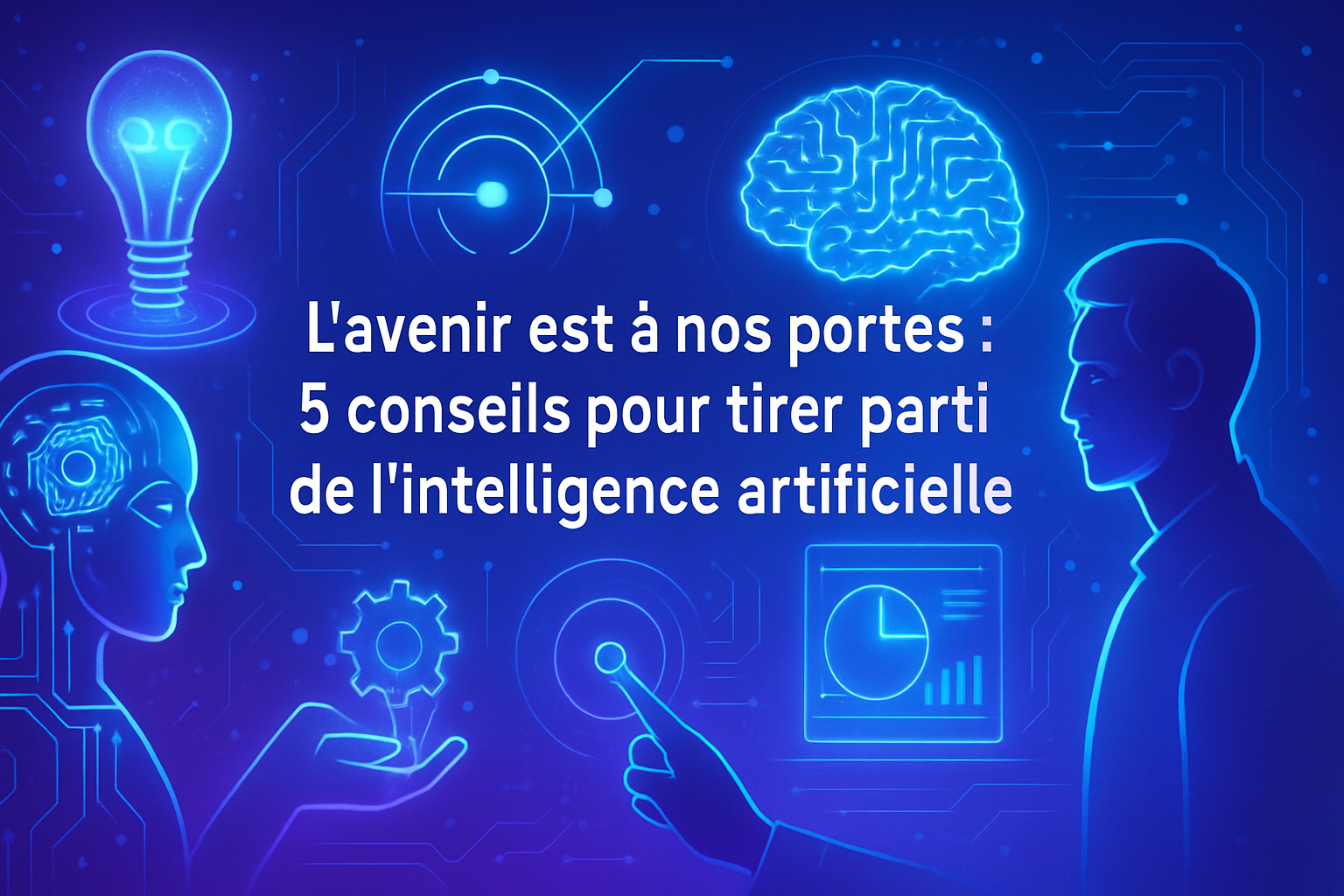Artificial intelligence transcends traditional understanding, revealing untapped potential at the heart of our daily lives. The advent of this technology promises to revolutionize various sectors while raising unprecedented challenges of _privacy_ and _security_. Grasping the monumental impact of artificial intelligence on our society, it appears essential to adopt informed and responsible practices. _Five wise tips_ will promote a harmonious integration of this technology, thereby preventing the pitfalls associated with its use. Balancing innovation and caution becomes a necessity for navigating this new era.
The Future of Artificial Intelligence
The recent developments in artificial intelligence promise a revolution in various sectors. This includes research, translation, health services, and the use of smart assistants. While these advancements offer enormous benefits, inappropriate use can compromise the privacy, safety, and reliability of systems.
Tip #1: Assess the Source of Information
It is essential to carefully examine the source of the data feeding artificial intelligence systems. Erroneous or biased information can generate harmful results. For example, a recent study showed how poorly trained systems can perpetuate existing inequalities in society.
Tip #2: Use Thoughtful Prompts
Using well-structured prompts is fundamental for obtaining relevant results. A thoughtful prompt guides AI systems and improves the quality of responses. Applying this method in tools like GPT Chat demonstrates better performance.
Tip #3: Protect Your Personal Data
Artificial intelligence systems collect a significant amount of personal data. Implementing security measures to protect this data is imperative. Users should remain vigilant about the permissions granted to applications using AI.
Tip #4: Be Aware of AI Limitations
Artificial intelligence, although fascinating, is not infallible. Knowing its limitations allows for informed decisions regarding its use. For example, a misinterpretation by an AI can have serious consequences, especially in the healthcare field.
Tip #5: Keep Up with Technological Advances
Staying informed about the latest advancements in artificial intelligence is fundamental. Numerous publications cover this topic, including the impacts of AI on various sectors like insurance. Reading recent articles and studies enables one to understand how to benefit from new developments.
At the same time, debates arise around the ethical aspects of AI, as evidenced by the controversy over an adorable video of bunnies on trampolines that raised concerns. Discussions about the use of AI clones in cases of bereavement also pose questions.
Companies like Google and Apple are investing heavily in the sector, attracting talent with high salaries. A shift is occurring in the industry, implying a relentless race for the best minds. These individuals often prioritize innovative projects over the establishment of new enterprises.
Market players must navigate these tumultuous waters strategically and knowledgeably. The future of artificial intelligence thus depends on thoughtful use, supported by practices that lead toward ethical and secure exploitation.
Frequently Asked Questions Guide
What are the main risks associated with using artificial intelligence?
The main risks include violation of privacy, safety issues, and potentially unreliable responses if AI is not used correctly.
How can I ensure my data is protected when using AI tools?
To protect your data, prioritize tools with robust security protocols, read the privacy policies, and avoid sharing sensitive information.
What are the best practices for maximizing AI efficiency?
Use well-formulated and specific prompts to ensure accurate results, review generated responses, and combine AI with your expertise for optimal use.
Can artificial intelligence completely replace humans in certain fields?
No, AI can complement human work, but it cannot replace emotional intelligence, creativity, and other essential human skills.
How can I evaluate the reliability of results provided by AI?
Analyze the source of information, check the consistency of responses with other data, and use common sense to judge their relevance.
Can AI be used in healthcare? What are the benefits?
Yes, AI can be used to improve health services, such as assisted diagnosis, patient data analysis, and treatment optimization, while increasing efficiency.
Which industries will benefit the most from the integration of artificial intelligence?
Industries like technology, healthcare, finance, and transportation are among those that can benefit the most from AI integration.
What personal data should I avoid sharing when using smart assistants?
It is advisable to avoid disclosing personal data, such as financial or medical information, when using smart assistants.






